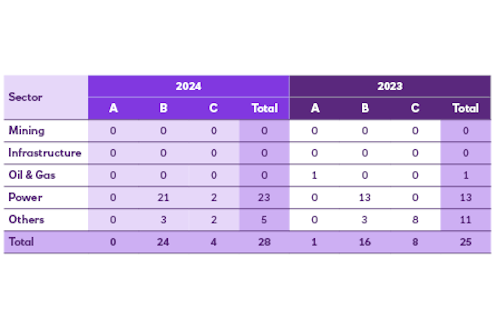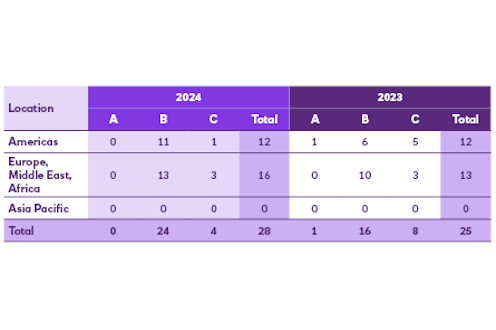The Equator Principles (EP) are a voluntary set of standards adopted by financial institutions for determining, assessing and managing environmental and social risks in project-related transactions. NatWest Group has been a member since 2003.
All transactions that fall within the scope of EP undergo an initial environmental and social risk screening (using a questionnaire). Typically for project finance deals, a suitably qualified technical advisor is engaged, who provides an opinion on potential environmental and social impacts of the project and compliance with the EP.
Additionally, such transactions are subject to enhanced due diligence by an ESE advisory team. This includes a review of the project-related transaction for compliance with the EP. The end result is documented and forms part of the credit application pack submitted for approval. The EP use a scale of categorisation – A to C – to determine the scale of environmental and social impacts, with Category A being projects with the highest impacts and Category C, the lowest. Depending on the risk category, the prospective financing may be subject to a further and separate review by a Risk Committee.
The requirements of the EP are embedded in the bank’s ESE Risk Acceptance Criteria.

